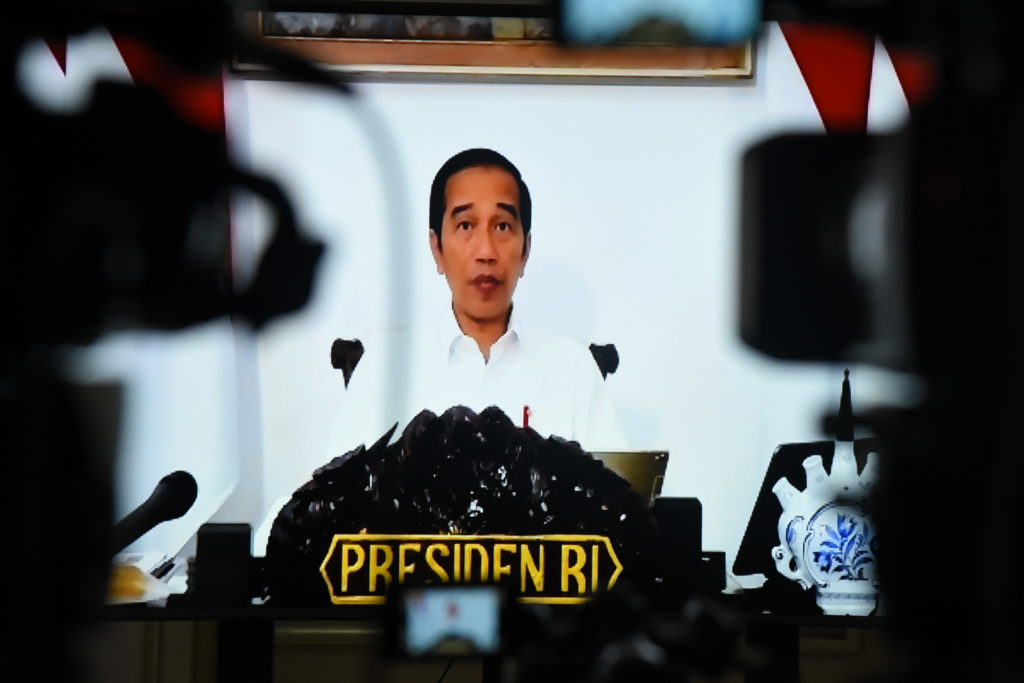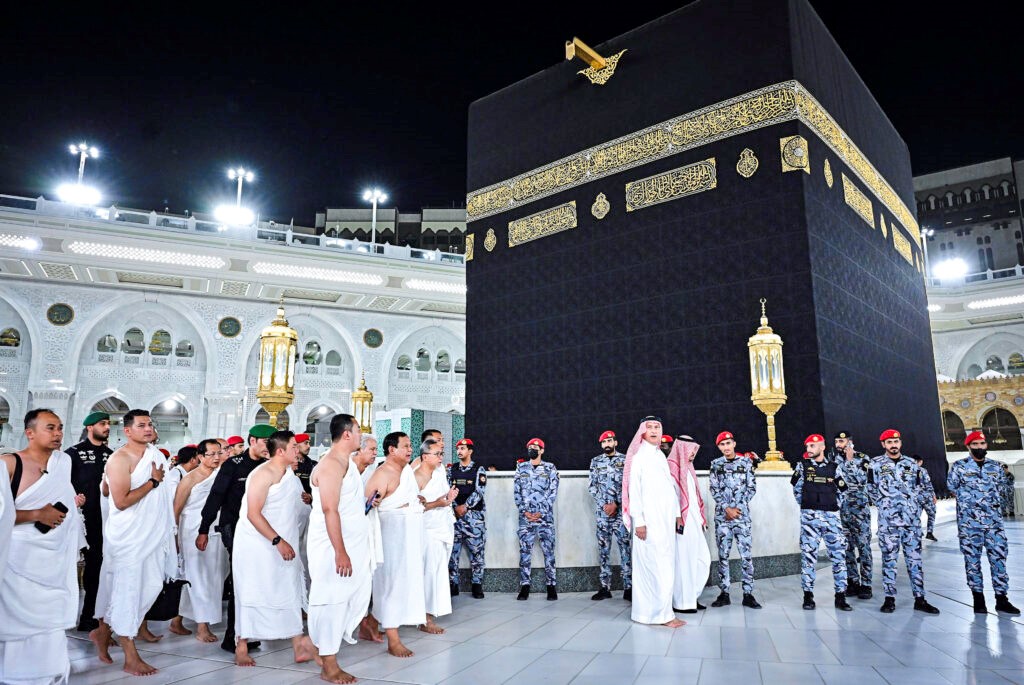President Jokowi Issues Directives on 2020-2035 Education Road Map

President Jokowi chairs a limited meeting on the 2020-2035 Education Road Map through a video conference, Jakarta, Thursday (4/6). (Photo by: Rahmat/PR).
Major changes that occur worldwide must be anticipated, ranging from technological disruption that affects all sectors of the application of automation, Artificial Intelligence, big data, to Internet of Things (IoT), according to President Joko “Jokowi” Widodo.
To that end, the President continued, the Government must also anticipate changes in demographics and socio-economic profile of the population which includes changes in the labor market that are more flexible.
“(Changes include) environmental changes to structural changes that occur very fast due to the COVID-19 pandemic, for example, distance learning, accelerated digitalization, and less contact economy,” the President said in his introductory remarks in a limited meeting on the 2020-2035 Education Road Map, Jakarta, Thursday (4/6).
Many countries worldwide have also begun to transform their education systems, both preschool education, primary, secondary, vocational and tertiary education to meet the needs of major changes, he added.
The President also reiterated that work arrangement in the future will be far more different from what it is today.
“The formation of excellent human resources in the future can no longer be based on the development of knowledge in the past, but it is based on future trends,” he said, while ordering for benchmarking to countries that have successfully adapted education system to meet the needs of future changes.
The President cited examples of education system in several countries such as Australia for its early school education system, Finland for primary and secondary education, Germany for vocational education, and South Korea for tertiary education.
According to the President, the Government wants to develop excellent human resources with noble characters based on cultural values of Indonesia and Pancasila state ideology.
“We should take into account character-based education because it is of particular importance in the nation’s mental and character development,” he said.
Another key point that must be highlighted is measurable targets, the President said.
“What the target enrollment rate for primary and secondary education as well as higher education is. I think this is just a high target so we must be optimistic and enthusiastic,” he said, adding that target for quality learning outcomes must be clear, be it related to improving teacher quality, curriculum, or school infrastructure, and how to realize an inclusive and equitable distribution of education across the country.
The President also reminded that the ability to reform is not only determined by Ministry of Education and Culture, but is determined by support from the education community as well, adding that support from ministries and institutions, education community, local governments, and also partnerships with the private sector is imperative.
“It is because education reform not only covers curriculum adjustments, pedagogy, and assessment methods, but also involves improving infrastructure, provision of access to technology and also funding support,” the President said. (FID/EN)
Translator: Muhardi
Reviewed by: M. Ersan Pamungkas








